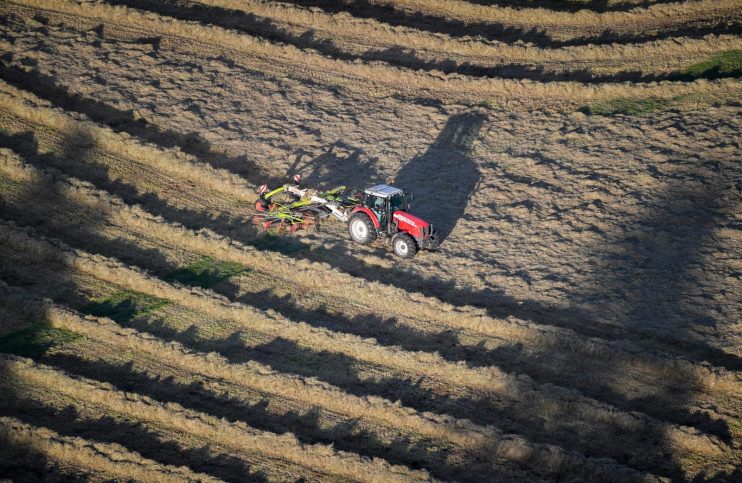Farmers to see EU-style subsidies cut in half by 2024 – reports

English farmers are set to see their EU-style subsidies cut in half over the next four years under the government’s post-Brexit transition plans.
When the UK was a member of the EU, farmers were paid so-called “basic payments” under the EU’s common agricultural policy.
After leaving the bloc in January, ministers continued to make payments in line with the EU system, but FT reported that plans are in place to slash such handouts.
According to documents seen by the FT, English farmers who currently receive more than £30,000 a year in subsidies will face even higher cuts.
At the top end, those who receive more than £150,000 a year will see payments slashed by 70 per cent.
The cuts present yet more bad news for the nation’s farmers, many of whom depend on such grants to remain profitable.
Payments will begin to be reduced from next year, as has already been announced, with subsidies below £30,000 to be cut five per cent in 2021. Higher subsidies will face stepped reductions calculated relative to their size.
The industry is already battling issues such as disruption to exports and concerns over food standards for imports.
Before the Open newsletter: Start your day with the City View podcast and key market data
Farmers are also awaiting more details of the government’s Sustainable Farming Incentive (SFI), which is set to help fill the gap left by lost EU subsidies.
The SFI is expected to act as a bridging scheme to protect incomes while the government puts in place its new Environmental Land Management programme instead.
The programme, which is expected to be fully up and running by 2024, will see farmers receive payments for better soil health, improved water quality, integrated pest management and hedgerow management.
Environment secretary George Eustice is expected to lay out further details of the post-transition regime for the industry in the coming days.
A spokesperson for the Department for Environment, Food and Rural Affairs said: “Our future farming policy will create cleaner, greener landscapes, helping build towards the government’s environmental goals and net-zero commitments.
“As we phase out direct payments over the seven-year agricultural transition period, we will offer financial assistance to help farmers prepare, and invest in ways to improve their productivity and manage the environment sustainably.”